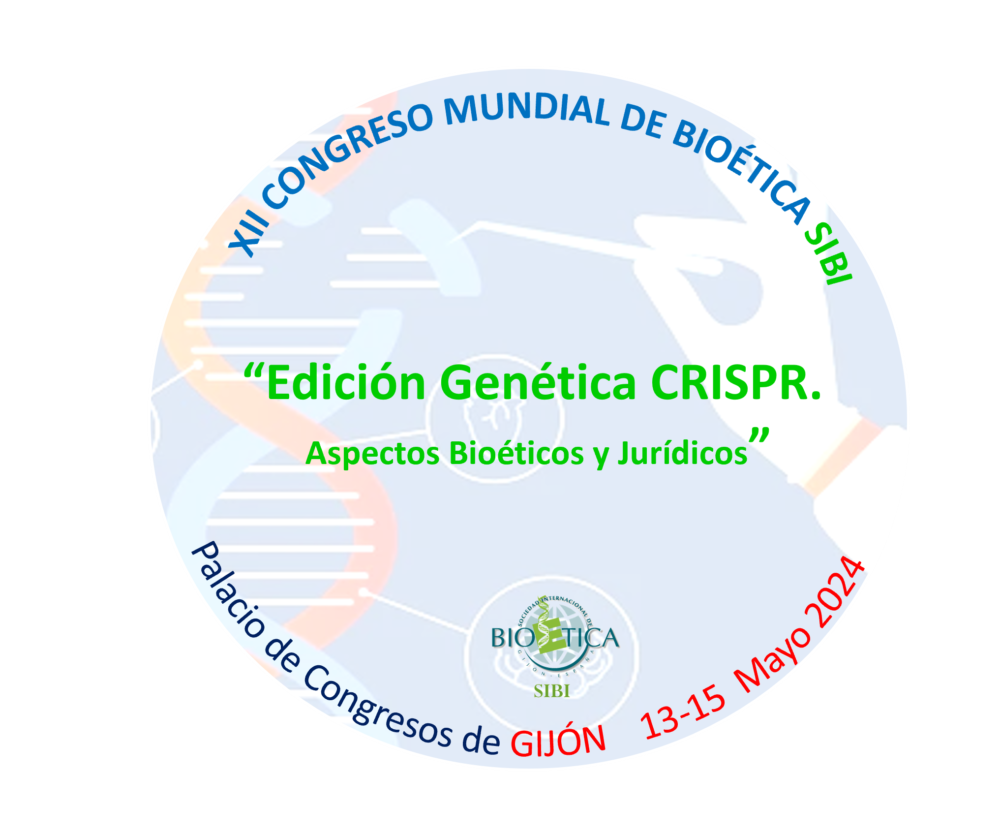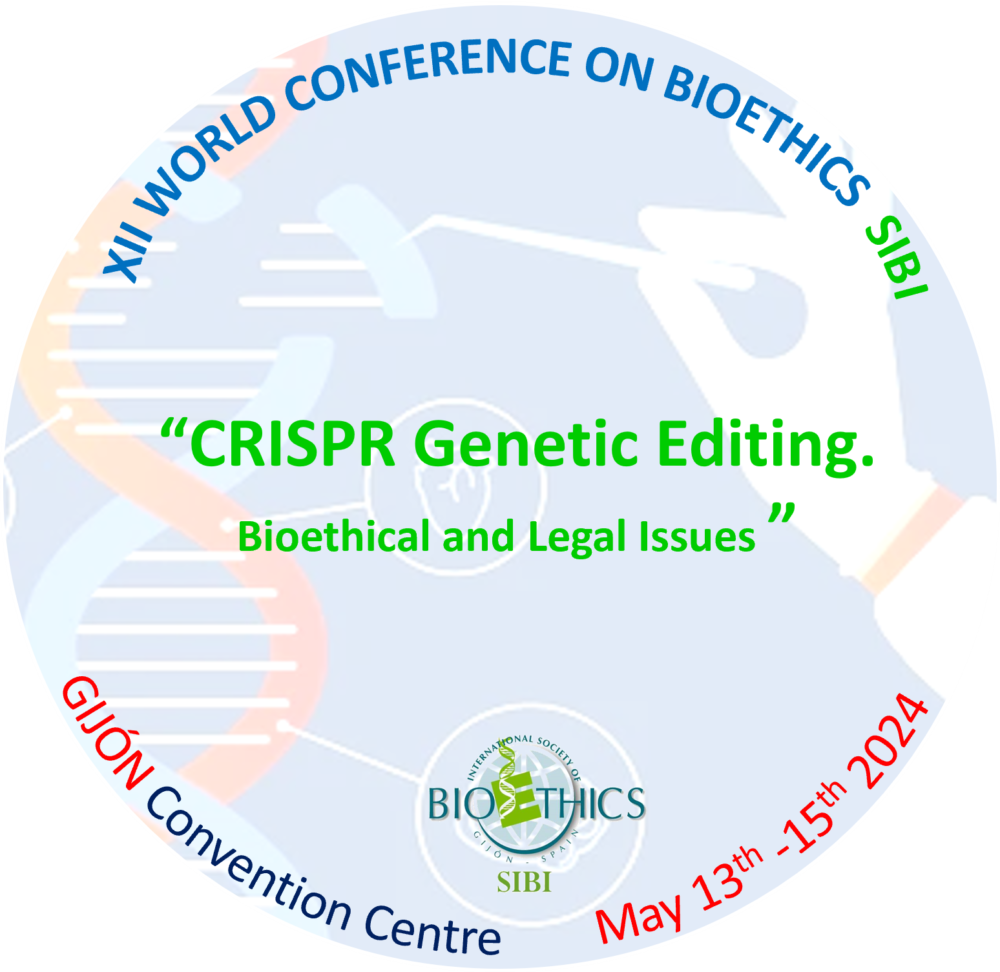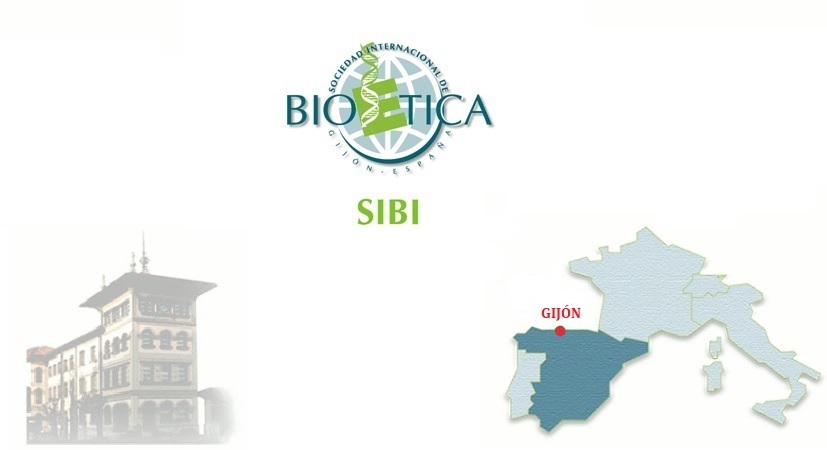

- BIENVENIDA
- PRESIDENCIAS Y COMITÉS
- PROGRAMA
- PONENTES
- INSCRIPCIÓN
- COMUNICACIONES
- INFORMACIÓN GENERAL
- PATROCINADORES Y COLABORADORES
- REPORTAJE FOTOGRÁFICO Y VÍDEOS
- WELCOME
- PRESIDENCES AND COMMITTEES
- PROGRAM
- SPEAKERS
- INSCRIPTION
- COMMUNICATIONS
- GENERAL INFORMATION
- SPONSORS AND COLLABORATORS
- PHOTO REPORT AND VIDEOS

Acto accesible en Lengua de Signos Española. Servicio de Interpretación de Lengua de Signos de la Fundación Vinjoy
Fechas importantes
- Apertura envío comunicaciones 8 enero 2024
- Fin plazo de envío comunicaciones: 5 abril 2024
- Notificación de comunicaciones admitidas: 12 de abril 2024
- Inicio del Congreso: 13 de mayo 2024
Important dates
- Opening of sending communications January 8, 2024
- End of communication submission deadline: April 5, 2024
- Notification of admitted communications : April 12, 2024
- Start of the Congress: May 13, 2024
1 Crédito ECTS de la Universidad de Oviedo
Reconocimiento de interés sanitario por la Consejería de Salud del Principado de Asturias.
Solicitados Créditos de formación contínua a la Consejería de Salud del Principado de Asturias.
1 free ECTS credit of the University of Oviedo
Recognition of health interest from the Ministry of Health of the Principality of Asturias.
Continuous training credits requested from the Health Department of the Principality of Asturias.
Bienvenida
Estimados colegas, amigas y amigos:
En nombre del Comité Organizador del XII Congreso Mundial de Bioética tengo el honor de darles la bienvenida a este encuentro científico que se celebra en Gijón, del 13 al 15 de mayo de 2024.
Será mi primer congreso como presidenta del comité científico de la SIBI, tomando el relevo de Marcelo Palacios, fundador e impulsor de la SIBI desde su creación en 1997, a quien agradezco la confianza depositada en mi persona que asumo con responsabilidad.
El Congreso versará sobre “Edición genética CRISPR. Aspectos Bioéticos y Jurídicos”. Se trata de un tema muy específico y quizás poco conocido, pero de enorme interés y actualidad. La edición genética ha sido considerada la mayor innovación científica en Medicina del año 2023 y este va a ser el primer congreso en el que se va a analizar desde el punto de vista bioético y jurídico.
Nuestro sentido homenaje a Francis Mojica, a quien agradecemos que haya aceptado la presidencia de este Congreso. A él se debe el inicio de esta gran innovación e incluso el nombre CRISPR (siglas en ingles del acrónimo “Repeticiones Palindrómicas Cortas Agrupadas y Regularmente Espaciadas”). El CRISPR permite editar los genes y reparar aquellos mutados, causantes de enfermedades. Sin duda, es un ejemplo destacado de investigación traslacional. No es ciencia ficción, ya se han aprobado fármacos para curar algún tipo de anemia que se transmite genéticamente. Y en un futuro cercano, sin duda, será posible la curación de otras enfermedades. La capacidad tecnológica aumenta, pero surgen nuevas preguntas y nuevos desafíos que requieren de la reflexión ética y de normas jurídicas.
Con especial ilusión y dedicación hemos elaborado el programa científico. En la conferencia inaugural “El Universo actual de las herramientas CRISPR: aplicaciones y retos”, Lluís Montoliu, recién galardonado con los premios CSIC-Fundación BBVA de comunicación científica nos introducirá con rigor y claridad en los aspectos científicos de la edición genética. Posteriormente, tenemos tres bloques: uno de reflexión sobre aspectos bioéticos, otro sobre los aspectos jurídicos y otro sobre la repercusión social de la edición genética. Para ello, contamos con la rica experiencia y el conocimiento de 17 expertos nacionales e internacionales en sus respectivas áreas de conocimiento que a través de conferencias y mesas redondas nos invitaran a la reflexión y a la deliberación sobre las oportunidades y desafíos que plantea esta nueva tecnología. Además, el debate se verá enriquecido con comunicaciones orales presentadas a debate en sesión plenaria. Otras interesantes aportaciones recibidas serán expuestas en modo de poster científico.
Una vez más, el Programa Pedagógico, tan querido en la SIBI, nos permitirá escuchar las reflexiones y aportaciones de estudiantes de secundaria y bachiller de colegios públicos y privados, dirigidos por sus profesores bajo la coordinación del Centro del Profesorado y Recursos de Gijón-Oriente.
La conferencia de clausura “Aprovechar el potencial global de la edición del genoma” a cargo de la estadounidense Alta Charo, profesora emérita de Derecho y Bioética. Universidad de Wisconsin-Madison supondrá el broche final de este congreso.
Asimismo, haremos entrega del Premio SIBI 2024 al profesor Juan Ramón Lacadena Calero, catedrático emérito de Genética de la Universidad Complutense de Madrid, en reconocimiento a sus numerosos méritos y sus deliberaciones y propuestas sobre los aspectos bioéticos de los usos científicos y tecnológicos.
Quiero mostrar mi gratitud a todos los miembros del Patronato de la Fundación SIBI, así como a los miembros del Comité Científico y más particularmente al Comité Organizador, a ponentes y moderadores, a quienes han enviado comunicaciones, a todos los participantes, y a la secretaria técnica, Beatriz García Arviza, de todos, de su contribución depende el éxito de este congreso.
Gracias también a los colegios profesionales por su colaboración entusiasta, a la dirección de la FIDMA y a todos los patrocinadores que de diversos modos nos han dado su apoyo y aliento.
Este Congreso ha sido posible por el esfuerzo y la constancia de muchas personas, que han sido capaces de superar las muchas dificultades externas, vividas en los últimos tiempos. Pero sobre todo expresa la perseverancia, es decir ese combate interior de cada uno consigo mismo y de todos los días para mantener en el tiempo el compromiso con la palabra dada, con la propia vocación, con la excelencia. Porque, en palabras de Aristóteles, somos lo que hacemos día a día, de modo que la excelencia no es un acto, sino un hábito.
El congreso que celebramos en la ciudad de Gijón, ciudad donde la tecnología y la ciencia conviven con el arte y la cultura, sede de la SIBI y faro de la bioética, quiere ser un espacio de reflexión rigurosa, dialogo constructivo que nos aporte el conocimiento de cómo usar el conocimiento para un mayor respeto a la dignidad de cada persona y protección de medio ambiente.
Muchas gracias,
Isolina Riaño Galán
Welcome
Dear colleagues, friends:
On behalf of the Organizing Committee of the XII World Congress of Bioethics, I have the honor to welcome you to this scientific meeting that is being held in Gijón, from May 13 to 15, 2024.
It will be my first congress as president of the scientific committee of the SIBI, taking over from Marcelo Palacios, founder and promoter of the SIBI since its creation in 1997, to whom I thank the trust placed in me, which I assume responsibly.
The Congress will focus on “CRISPR gene editing. Bioethical and Legal Aspects”. This is a very specific topic and perhaps little known, but of enormous interest and relevance. Gene editing has been considered the greatest scientific innovation in Medicine of the year 2023 and this will be the first congress in which it will be analyzed from a bioethical and legal point of view.
Our heartfelt tribute to Francis Mojica, whom we thank for accepting the presidency of this Congress. The beginning of this great innovation and even the name CRISPR (acronym in English of the acronym “Clustered Regularly Spaced Short Palindromic Repeats”) is due to him. CRISPR allows you to edit genes and repair mutated ones that cause diseases. Without a doubt, it is an outstanding example of translational research. It is not science fiction; drugs have already been approved to cure some type of anaemia that is transmitted genetically. And soon, it will undoubtedly be possible to cure other diseases. Technological capacity increases, but new questions and new challenges arise that require ethical reflection and legal standards.
With special enthusiasm and dedication, we have developed the scientific program. In the inaugural conference “The current Universe of CRISPR tools: applications and challenges”, Lluís Montoliu, recently awarded the CSIC-BBVA Foundation awards for scientific communication, will introduce us with rigor and clarity to the scientific aspects of genetic editing. Subsequently, we have three blocks: one for reflection on bioethical aspects, another on legal aspects and another on the social repercussion of genetic editing. To do this, we have the rich experience and knowledge of 17 national and international experts in their respective areas of knowledge who, through conferences and round tables, will invite us to reflect and deliberate on the opportunities and challenges posed by this new technology. In addition, the debate will be enriched with oral communications presented for debate in a plenary session. Other interesting contributions received will be displayed as a scientific poster.
Once again, the Pedagogical Program, so loved at SIBI, will allow us to listen to the reflections and contributions of secondary and high school students from public and private schools, directed by their teachers under the coordination of the Gijón-Oriente Teaching and Resources Center.
The closing conference “Harnessing the global potential of genome editing” by the American Alta Charo, professor emeritus of Law and Bioethics. The University of Wisconsin-Madison will mark the final touch of this conference.
Likewise, we will present the SIBI 2024 Prize to Professor Juan Ramón Lacadena Calero, emeritus professor of Genetics at the Complutense University of Madrid, in recognition of his numerous merits and his deliberations and proposals on the bioethical aspects of scientific and technological uses.
I want to show my gratitude to all the members of the Board of Trustees of the SIBI Foundation, as well as the members of the Scientific Committee and more particularly to the Organizing Committee, to the speakers and moderators, to those who have sent communications, to all the participants, and to the technical secretary , Beatriz García Arviza, the success of this congress depends on everyone, on their contribution.
Thanks also to the professional associations for their enthusiastic collaboration, to the management of FIDMA and to all the sponsors who in various ways have given us their support and encouragement.
This Congress has been possible due to the effort and perseverance of many people, who have been able to overcome the many external difficulties experienced in recent times. But above all it expresses perseverance, that is, that inner struggle of each person with himself and every day to maintain over time the commitment to the word given to one’s own vocation, to excellence. Because, in the words of Aristotle, we are what we do day by day, so excellence is not an act, but a habit.
The congress that we held in the city of Gijón, a city where technology and science coexist with art and culture, headquarters of the SIBI and lighthouse of bioethics, wants to be a space for rigorous reflection, constructive dialogue that provides us with knowledge how to use knowledge for greater respect for the dignity of each person and protection of the environment.
Many thanks,
Isolina Riaño Galan
